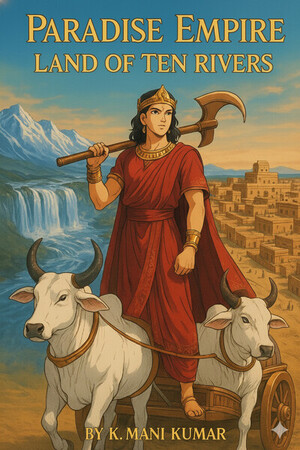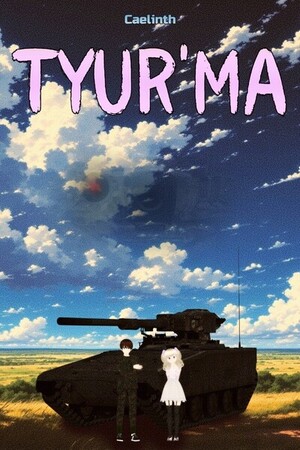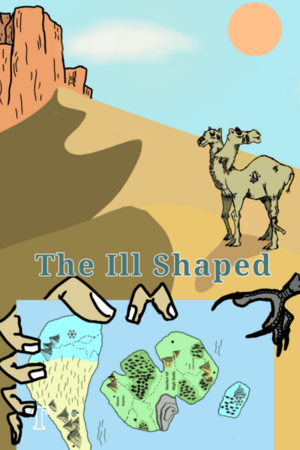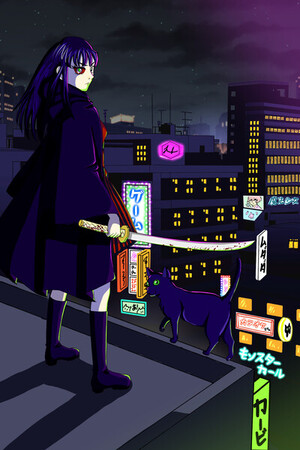Chapter 0:
Prologue: The Beginning of Land of Ten Rivers
The Paradise Empire: The Land of Ten Rivers season 1 part 1
[Sound: distant drums, children’s laughter, crackle of a bonfire]
Orange sparks dance into the night sky.
Scene 1 — The Harvest Night
The moon hung full above the Land of Ten Rivers, its silver light spilling across fields heavy with ripened grain.Villagers moved like silhouettes around the bonfire—men stacking wood, women weaving garlands of lotus and marigold, children racing barefoot with painted clay pots.
The air was warm with roasted grain, incense, and the hum of celebration.
At the heart of it all, the elders sat cross-legged in a circle, their wrinkled faces glowing like carved bronze in the firelight. They spoke in half-laughter—of old days, lost harvests, and the gods that still watched them.
But apart from the crowd, one boy sat still—eyes fixed on the fire. He stared so deeply it almost seemed as though the flames whispered back to him.
Why do we do this every year? Who is the god of this night? Who began this world of ours?
The questions stirred inside him like a storm.
A shadow moved behind him. It was his grandfather—an old man with eyes soft as dawn.
“Why aren’t you playing with your friends?” he asked, lowering himself beside the boy. “They’re running along the riverbank.”
The boy turned, voice quiet but sharp with curiosity. “Grandpa… why do we celebrate this festival every year? Who started it? Who is this god we honor? I want to know everything.”
The old man smiled faintly—the kind of smile that carried both love and memory. He placed a hand on the boy’s cheek. “Come,” he said softly. “Sit with me.”
They walked to the edge of the crowd—to a quiet bench beneath the great banyan tree, where the firelight shimmered through its roots.
The old man looked back at the bonfire, as if peering through time itself. “I’m glad,” he murmured, “that my grandson isn’t like the others. You want to know why things are. Once, long ago, there was another boy like you—one who asked too many questions. He too came from a small village… and he changed everything. His victory became this festival.”
The boy’s eyes widened. “Who was he, Grandpa?”
The old man leaned back. His voice deepened—carrying weight, echo, and power. “Before you can know him, you must know the beginning of the Land of Ten Rivers.”
He closed his eyes.
The flames slowed—The drums faded—The wind shifted—
— Flash —
Scene 2 — Creation: The Divine Splitting
The screen fades into gold light.
Silence. An endless void.
Then—a single radiant energy floated in the emptiness—bright, golden, infinite.
From that Supreme Essence arose three forms, equal and eternal—Īśvarayya, Ādiyam’mā, and Nalannaya—the Father, the Mother, and the Protector. Three facets of the same luminous being.
A low hum fills the void.
Īśvarayya—the Supreme Father—stood vast as galaxies, his presence echoing through the timeless dark. Ādiyam’mā—the Supreme Mother—arose beside him, her form soft as moonlight, eyes overflowing with compassion. Nalannaya—the Great Protector—appeared last, gleaming in armor of starlight, strong and serene.
whoooosh—golden waves ripple outward.
Īśvarayya lifted a sacred golden vessel, filled with divine water. With a holy leaf, he sprinkled the drops across the void.
Each drop became a star, each star a universe, each universe a dream awaiting awakening. Some drops fell heavier, bursting into life as gods and goddesses; others became Half-Human Winged Entities, proud and rebellious.
From one shining drop arose Goddess Earth, green and blue, breathing with forests and seas.
Nalannaya descended, moved by her beauty, and took her as his wife—thus became Protector of the Living World.
High above, the Sky god emerged and forged elemental gods from his breath—fire, wind, lightning, stone—and sent them to fill creation with movement.
And by the pure will of Īśvarayya, a holy Garden bloomed of its own—a vast universe unfolding like a lotus in dawnlight.
Thus arose the Universal Garden, realm of crystal rivers and eternal light.
Īśvarayya sat upon a golden throne beneath the Holy Tree. Ādiyam’mā upon a silver throne beside him. Nalannaya upon the third, his spear resting calm on his knee.
The eyes of Īśvarayya and Ādiyam’mā met each other—and they lifted their hands in blessing.
From that union of divine will, crimson energy burst forth—wild, uncontrollable, glowing like a star about to be born.
When it settled, a new deity stood between them—fierce yet radiant—the god of glory Vīrayya.
And lightning cracked behind him as he bowed.
whooosh—thunder rolls—light fades to blue.
And some of the drops that touched the earth became humans, animals, and the first living souls.
Īśvarayya then gazed upon the earth and saw the struggles of mankind. He lifted his hand again.
From his will, ten streams of divine energy flowed like light through the heavens, descending as brilliant rivers toward the newborn world.
Scene 3 — Descent of the Ten RiversThe drops fell from the edge of the Universal Garden onto the rugged peaks of a young planet—crashing into ice and stone.
As they touched the earth, the mountains turned white with frost, and from them burst Ten Mighty Rivers, flowing toward the green valleys below.
Each river was a goddess—alive, conscious, eternal.
Pedda Nadīyam’mā—Great River Mother. The eldest and mightiest, the source of all fertility and wealth.
Puṇaya Nadīyam’mā—Holy River Mother. She purifies sin and stands witness to every oath.
Jīva Nadīyam’mā—Life-Giving River Mother. Her flow carries vitality to every being.
Vēgamam’mā—Swift River Mother. Fierce and wild, crashing through stone with untamed freedom.
Tirayam’mā—Flowing River Mother. She is destiny itself, the unseen pull of fate guiding the world.
Āra Nadīyam’mā—Deep River Mother. The current beneath all currents, silent wisdom of the earth’s heart.
Pāvayam’mā—Pure River Mother. Her waters shine clear as crystal, cleansing body and soul alike.
Nīlayam’mā—Blue River Mother. Gentle and nurturing, keeper of harvests and soil.
Amṛtam’mā—Immortal River Mother. Her waters heal and grant longevity to those who believe.
Cinna Nadīyam’mā—Little River Mother. The youngest and most playful—laughter flowing in every stream.
Their voices filled the skies like hymns. Together they brought life wherever they flowed.
But their combined power was immense—the land trembled beneath them.
So Īśvarayya created Sagarayya, the Lord of Oceans, to receive and calm their waters.
He became their husband, and all rivers found peace in his embrace.
The rivers met him at the world’s edge, merging into a single boundless sea—shimmering like molten gold under a newborn sun.
Scene 4 — Rise of the Five Crowns cities From the Universal Garden, the God of Glory Vīrayya looked upon mankind and saw them struggle in ignorance
Beside him stood his wife, Goddess Śāntam’mā, the deity of peace and fortune. Together, they had five divine sons:
Dīrayya (Lord of Valor)
Yudhayya (Lord of War)
Sēnayya (Lord of Armies)
Vendayya (Silver Lord)
Tejmayya (Lord of Radiance).
They descended to earth with their wives, carrying the wisdom of their father and mother, to build a civilization worthy of the divine.
Where their feet touched the soil, cities rose.
Dīrayya built Maniyanūru, with the great temple of Vīrayya and Śāntam’mā, where the flames of devotion burned forever for his parents.
Yudhayya built Girivūru, home of Nalannaya and his radiant wife Velugamma, Goddess of Light and Wealth.
Sēnayya built Īśvaranūru in the far north, dedicating its towering temples to Īśvarayya and Ādiyam’mā themselves.
Vendayya built Dharānūru, sacred to Goddess Earth and Nalannaya, her husband and the great protector.
Tejmayya built Śasyānūru, the great harbor city of ships and traders, where stood the temple of Sagarayya and the Ten River Mothers.
From these Five Crown Cities spread wisdom and prosperity.
The gods’ children taught humanity to farm, to forge, to build, and to pray.
Scene 5 — The Thirty-One CitiesAnd mankind multiplied, their cities glowing like fireflies across the land of ten rivers.
Their names echoed like poetry across the ages:
Ārāvūru—River-Town
Velugūru—Light-Town
Māmiḍūru—Mango-Town
Gummadūru—Gateway-Town
Aḍavūru—Forest-Town
Kāvalūru—Guard-Town
Peddūru—Big-Town
Doravūru—Lord’s-Town
Tinnanūru—Straight-Town
Ērayyūru—River-Lord’s-Town
Errūru—Red-Town
Velayūru—Price-Town
Callanūru—Cool-Town
Madhyanūru—Middle-Town
Vānavūru—Rain-Town
Kāvaūru—Protector’s-Town
Chandragiri ūru—Moon-Town
Kolnūru—Pond-Town
Ammanūru—Supreme Mother’s-Town
Tāṭūru—Palmyra-Town
Kobarūru—Coconut-Town
Sēlanūru—Brook-Town
Nēlanūru—Earth-Town
Koṇḍanūru—Hill-Town
Tēnūru—Honey-Town
Manānūru—Our-Town
Kāyavūru—Fruit-Town
Vāgūru—Stream-Town
Valanūru—Net-Town
Ānānūru—Oath-Town
Cēnūru—Field-Town
And thousands of villages bloomed around them—Kīlūru, Lēkūru, Avunūru, Mūvūru, and their own village Manūru, closest to Maniyanūru.
The population grew—7,000,000 souls in the Land of Ten Rivers, and 200,000 more who sailed across the sea to foreign empires for trade and fortune.
They brought with them gold, bronze, and the wisdom of the gods.
But in those distant lands, men worshipped the Half-Human Winged Entities as gods—a dark seed of pride growing far from divine truth.
Still, the land of ten rivers prospered.
To the north of Īśvaranūru stood a mystical city, near the icy mountains where the Ten Rivers began.
There, a grand temple rose—where all Ten River Goddesses were worshipped together.
The lands between that temple city and Īśvaranūru glowed like heaven itself—rivers weaving through emerald fields, mountains shining white, skies painted in endless blue.
Beyond those mountains lay the wild northern plains, home to tribes who worshipped elemental gods—the untamed cousins of man.
Thus began the age of peace—the age of rivers, gods, and cities.
— Flash —
Scene 6 — Return to the Fire
The golden light collapses back into the bonfire’s glow.The boy blinks—his eyes wide, as if he had seen the whole creation unfold in the flames.
“Grandpa…” he whispers, “but how did we become one great empire? How does it connect to this festival?”
The old man chuckles softly.
“Everything is connected, my child. And if you wish to know the one who united them all—our hero—then listen closely.”
He turns toward the fire, his face lit by orange and gold. For a moment, his eyes look far away—as if seeing another lifetime.
“He was…”
The old man pauses.
“…different, just like you.”
Scene 7 — Vision of the VīraThe flames twist, forming visions of another time.
A young warrior stands barefoot in the sunlit field, gripping a plow of shining bronze. He wears no jewelry—only sweat, dust, and the strength of labor.
whoooosh—scene shift
He rides a bronze chariot, pulled by two bulls, adorned in gold and bronze ornaments, hair flying wild in the wind.
Flash 3 —
A royal man stands beside him on a marble balcony, raising Vīra’s arm before a cheering crowd.
“Vīra! Vīra!” they chant—the cry of thousands.
Flash 4 —
The scene changes again—a foreign city, walls burning red under sunset. Vīra stands atop them, a bronze axe in his hand. His own settlers behind him roar their allegiance.
Flash 5 —
Now he stands before the sacred Amṛta River. Across the water lies the army of the northern tribes.
He grips an iron-coated plow, veins shining with fury.
He raises it high and shouts:“I swear upon these icy mountains! I swear upon the ten rivers! I swear to the gods, the five crown cities, the thirty-one towns, and the seven million souls of our land— None shall cross the Amṛta River while I yet live!”
The fire dims. The vision fades.
The old man whispers:
“He is… VĪRA.”
Scene 8 — The True BeginningThe camera pans upward—over rivers, over mountains, into the night sky.
The stars align—forming the shapes of a plow and an axe.
Text fades in:
THE PARADISE EMPIRE:The Land of Ten Rivers
The True Beginning — The Story of a Vīra
whoooosh—screen fades to white.
End of Prologue.




Please sign in to leave a comment.